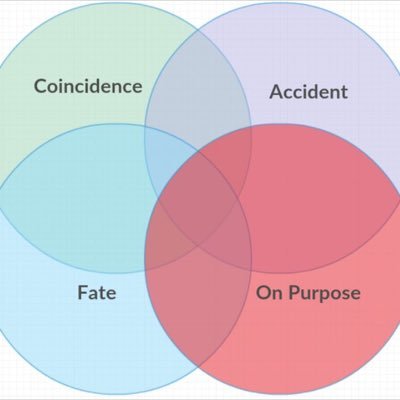Can we ever joke about tragedy?
The idea of laughing at terrible events should make sense to everyone. Even if you’re not a gallows humor type of person, there’s no question that humor can be a natural response to sad and devastating things. Humor makes life more palatable, less real, and generally less serious. So if something incredibly painful happens, laughing about it is one possible way to ease the pain.
Beyond that, being offended by something is a choice. Not in the sense that you’re able to decide in the heat of the moment if you’re angry or not, because typically that reaction occurs before you’ve had a chance to think about it. Being offended is a choice in the sense that you can decide in advance what you would view as generally off limits to make fun of. Offense occurs when you experience a “perceived deprivation of what is rightfully due to a person.” You don’t have to accept this definition on faith, but if you really think about why you get offended, it makes a lot of sense. You’re offended when you feel that someone or something has not lived up to your moral standards. Someone else’s words or actions have gone beyond the line of what you consider to be morally acceptable.
So why is it that some people choose to be offended (or to have a lower threshold for offense) and some people choose not to be? What is it that makes a person more likely to find humor in the midst of terrible events, or to laugh at jokes about terrible things? You could argue that people who laugh at tragedies are people with lower moral standards, but that would be to condemn most comedians as bad people. Laughing at something doesn’t make you a bad person. Doing bad things makes you a bad person. There must be some deeper truth here…
What makes this problem even more complex, is that people will generally move their moral line based on the amount of humor involved in an insult. Let me give you an example of two quotes from last year’s Comedy Central Roast of Justin Bieber:
“Pete Davidson’s dad died on 9/11. Haha.”
“The only person who inhales more smoke than Snoop Dog is Pete Davidson’s dad inside the World Trade Center.”
You may not think either of these quotes are funny. But I’m certain that more people will laugh at the latter than the former. The Snoop Dog joke can be interpreted as clever and humorous, while the first joke is barely even a joke. Almost no one will laugh at it.
Some people consider a tremendous variety of jokes to be morally reprehensible. Some people, however, have realized that expressions by another person are not a direct attack on themselves. Someone else’s expressions are a byproduct of their own thoughts and experiences, and even if directed specifically at you, they probably have very little to do with you. It seems as though people like Pete Davidson, who choose not to be bothered by insults, humorous or otherwise, simply do not view other people’s words as personal attacks. They have a better understanding of why people say what they say.
People make jokes for their own benefit. Most commonly they are seeking laughter, and it’s your choice whether or not to give it to them. Underneath that, there are many reasons why someone might make a joke. They could be merely looking for laughter and affirmation, or they could be trying to relieve a tense situation. They could be trying to demonstrate value and show their wit, or they could be trying to offend you to make themselves feel superior. In any case, the action is about them. Anything that someone says to you stems from their own feelings and desires.
So why would you want to be offended by someone else’s actions? If given the choice, isn’t it easier and healthier to not get upset? What benefit are you providing yourself by getting upset over what someone else has said to you? In the vast majority of circumstances, where you can control how you feel about a specific topic, what is the point of choosing to be offended?
Guilt and Fear.
In my opinion, people get offended due to guilt and fear. There’s often guilt that is felt when joking about objectionable subject matter, and there’s a fear that something bad will happen to you as a result. I think much of this emanates from deeply-rooted superstitions. Although you aren’t constantly aware of it, you subconsciously worry that joking about a car crash will in some way make you more likely to get into a car crash. Try saying this aloud:
“All of those people who crash their cars are idiots. That would never happen to me!”
Even the least superstitious people will probably experience some degree of nervousness upon uttering such a sentence. A rational person, however, will quickly realize that this anxiety is ridiculous and move on with their life. There’s no reason why saying something about a car crash would have any bearing on whether or not you’d get into one yourself. Nonetheless, that nervous feeling is instinctive and can be difficult to overcome.
This gets even more difficult for people who believe in God. If God is monitoring your thoughts, then there is a clear incentive to try to arrange your mind in such a way so that you would reduce your potential for being punished. If there is a God, he surely would not look kindly upon your mockery of illness or death or other terrible things. So being offended about these things is the easiest way to say, “See, God! I know that this is bad and therefore I am not a bad person!” God fearing people will essentially choose to be offended in order to avoid offending God.
If you’re a rational, non-superstitious, non-religious person, then these reasons to be offended can basically be wiped off the table. What you’re then left with is a legitimate choice about whether you let other people’s words bother you or not. This is not to say that everyone should make jokes about tragedies. Some people simply do not find this type of humor to be funny. What I am saying is that given the choice, there is no good reason to let other people piss you off. There is no reason to allow someone else to reduce your own sense of well being. And changing your mindset in this way is very likely to make you a happier person overall.


